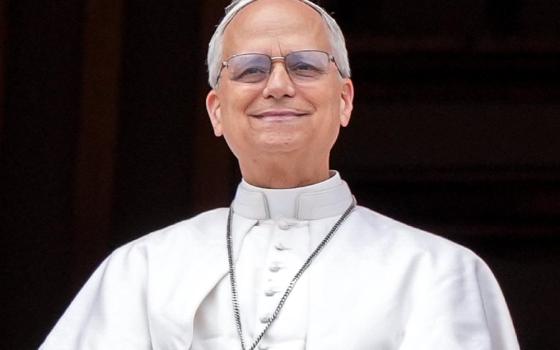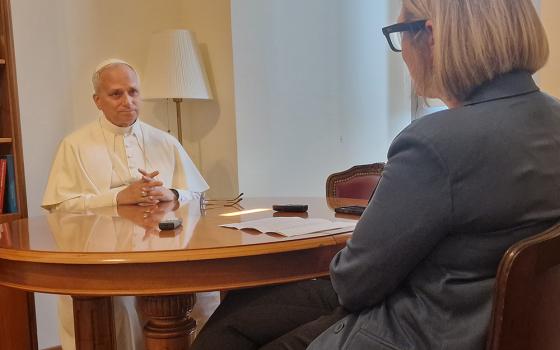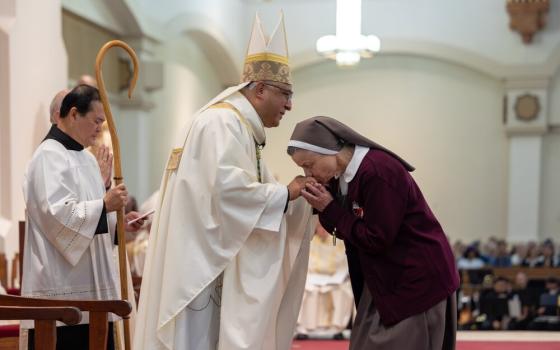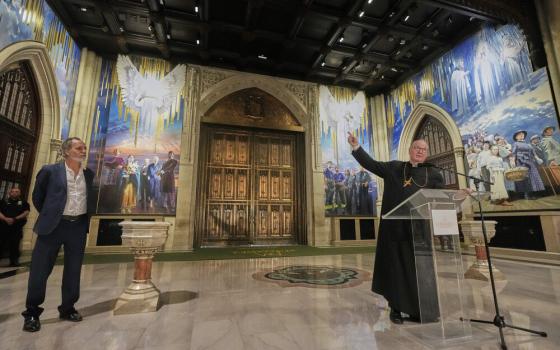
Following are NCR reader responses to recent news articles, opinion columns and theological essays with letters that have been edited for length and clarity.
Revisiting English Mass
Thank you Fr. Reese for highlighting the need to update the English translation that we use for mass (NCR, Aug. 29, 2025). I agree that we should begin using the 1998 translation as soon as possible. I think, though, that we should include the assembly's prayers and responses as well. The current ones are awkward for many of us and particularly difficult for children and those who are English language learners. It would also bring us back in alignment with other liturgical Christian churches. Let's face it; the response to "The Lord be with you" should be "And also with you." "And with your spirit" makes no sense in English.
While I would like the 1998 translation used immediately, I think there should also be a review to see what further updates may be warranted. The English language has continued to evolve and we are now 25+ years on from that translation. I look forward to having a more comprehensible liturgy soon.
Joanne Corey
Vestal New York
***

1998 translation superior
Responding to Thomas Reese’s article on the English translation of the Mass, I will say that I was thrilled with the 1973 ICEL translation (NCR, Aug. 29, 2025). It spoke God's Word to me in the presider's prayers, and the people’s acclamations became part of me.
Fast forward to the early 2000s, with the 1998 translation still in limbo and conservative liturgists under Benedict holding sway, fearing an integral part of my prayer life was being torn away, I advocated as best I could.
Going back to a literal translation from the Latin did not make sense. The Vulgate, after all, was a translation from Greek into the Latin of the common people. Why would we now return to a stilted literary translation into English? And why would you disrupt the people's prayer with picky changes?
Still now I can barely spit out "incarnate of the Virgin Mary," and have just given up saying "WE believe" under my breath. Distract me for a minute and I will sing out gustily: "And also with you!"
Having perused the 1998 translation, I find in it the best of 1963 without its down sides. So yes, with Pope Francis' and Pope Leo's opening the bishops' conferences to greater freedom in translating the liturgy, let's reopen the discussion.
Adopting the 1998 translation would make our liturgy more welcoming to all.
Frances Rossi
Boulder, Colorado
***
Advertisement
Adapting reconciliation
Timothy Gabrelli's article about the evolution of the Sacrament of Reconciliation is both a call to be grateful for forgiveness and new beginnings as well as for the continued evolution of the sacrament (NCR, Sept. 7, 2025). In its present form it requires that women must always go to a man for the sacrament. What if that situation were reversed? While reconciliation has been a source of healing and consolation for many, I wonder about how many more are too fearful and humiliated to go to confession in its present form. I'd love to see reconciliation services that do not require confession to a priest or at least make it an option. This will emphasize the teaching that only God forgives sin and will also provide communal support. No matter what, we can all take encouragement from the teaching of St. Francis de Sales who invites us to love God more than we fear sin.
(Br.) Bernard Seif, SMC
Brodheadsville, Pennsylvania
***






